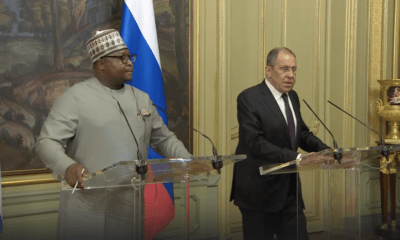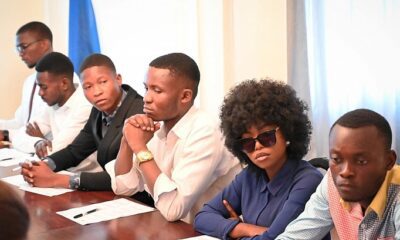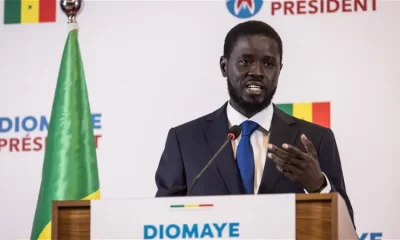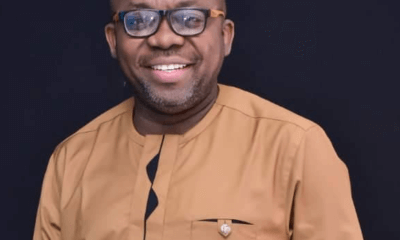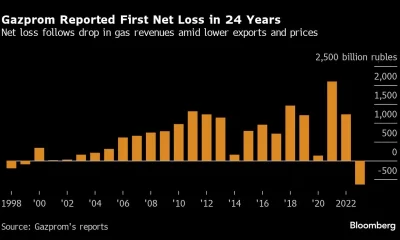Political Issues
An Ominous Silence In The Southeast -By Kene Obiezu
In 2023, the Southeast actually played the ethnic and religious card in arguing that it was its turn to produce the president of the country. As the only region in Nigeria yet to produce a president for the country since 1999, the region was quite vociferous in its argument that it was its turn. Some notable people outside the region even sympathized with the region on this score.
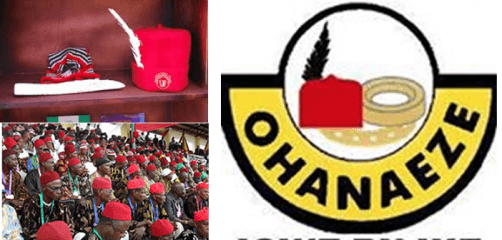
A glacial silence sweeps through Nigeria’s Southeast riotously contradicting the cyclones of protests scything through major Nigerian cities, and turning well-appointed paunches in Abuja in the process.
Maybe someone should wake the Southeast and tell them that something is happening in Nigeria. Emissaries, perhaps even messengers of doom and bearers of sad news, should hasten to the Southeast and break the news to them that something is happening in Nigeria.
Word has to reach that region that defied the odds between 1967-70, and has largely borne the brunt of Nigeria’s dysfunction since then, that finally, the pregnant silence has put to bed, and it is a cacophony of angry noises.
As Nigerians have been forced into a face-to-face encounter with their new reality, many have lost any pretence at civility and decorum. Protests have rocked Minna where former military president Ibrahim Babangida still lives as well as Kano, that ancient city of ancient animosities, as well as Ibadan, the very heart of the Southwest, where former Attorney- General, Bola Ige was killed in 2001. In Borno State the home state of Kashim Shettima who is Nigeria’s vice-president, people who are too weak and hungry to protest have conveniently swapped protests for emergency piety by way of prayer and fasting.
While every part of the country erupts in a fit of conniptions at the suffocating cost of living under an administration that is appearing increasingly adept at cluelessness, an impregnable silence cloaks the Southeast like a burial shroud. The suspicion is that it will take more than the hurried hysteria of other parts of Nigeria to shred it. As lamentation licks away the laughter in other parts of the country, the Southeast wears an inscrutable demeanor, posting the quietly triumphant pose of a seer who was dismissed as a ranter but is now seeing their prediction come to pass with chilling precision.
Already, Ohanaeze Ndigbo, the Igbo socio-cultural group, has warned its members to shun any protests. The Indigenous people of Biafra Movement has also drawn on historical grievances to ask the people of the Southeast to shun any protests. It is perhaps the first time in the history of Nigeria that an entire region is cloaking such a loud message in utter silence. To say that the signs are ominous would be to put it mildly.
In 2023, the Southeast actually played the ethnic and religious card in arguing that it was its turn to produce the president of the country. As the only region in Nigeria yet to produce a president for the country since 1999, the region was quite vociferous in its argument that it was its turn. Some notable people outside the region even sympathized with the region on this score.
But because the fierce independence of the average Nigerian from the Southeast usually trumps any appeal to ethnicity or religion, the Southeast’s clamor was not really about producing a president for the country. On the ballot was a certain Peter Obi whose compelling competence and rare inviolability as a politician marked him out as the man to revive the dying embers of the Nigerian dream. At the end of the politicking and electioneering which ground to a halt with the Supreme Court judgement of October 26, it turned out that the Southeast was not vociferous enough.
President Tinubu who was sworn in on May 29th has remained president but it has been far from smooth. In fact, if anything, the transition has been tumultuous.
As a new president struggles to come to grips with the daunting challenges confronting a country mismanaged for years, protests have swept the country like a plague. While a few people have called for the president to be given time to steady the ship of the country, a few others have nodded knowingly as their predictions have come through with chilling precision. Yet, an entire region is strangely silent. Is it mourning or simply gloating? If the former is suited to silence, what about the latter?
Perhaps, it is just a region going about its business, which is too focused to be bothered by events elsewhere. It may also be that in asking the long-suffering people of the Southeast to stay out of whatever protests are convulsing other parts of the country, Ohanaeze is trying to play it safe, while the IPOB is trying avoid uncomfortable attention.
Since Nnamdi Kanu, the incarcerated leader of the IPOB started his run-in with the Nigerian authorities, the Southeast has hardly had a sniff of rest. His re-arrest in 2021 plunged the region into crisis with the crippling sit- at-home imposed by the IPOB in the region, and wave after wave of insecurity turning the region into a semi war zone. While Nigeria’s security forces have put up a fight against the agents of chaos rampaging through the Southeast, the region has mostly been left to fight its battles alone. The reaction of the region to the ruckus rumbling through other parts of the country may is akin to a shrug of nonchalance and indifference returned to those who did the same at a different time.
If that is the case, it is really ominous for the prospects of Nigeria’s unity and national development.
Kene Obiezu,
keneobiezu@gmail.com

